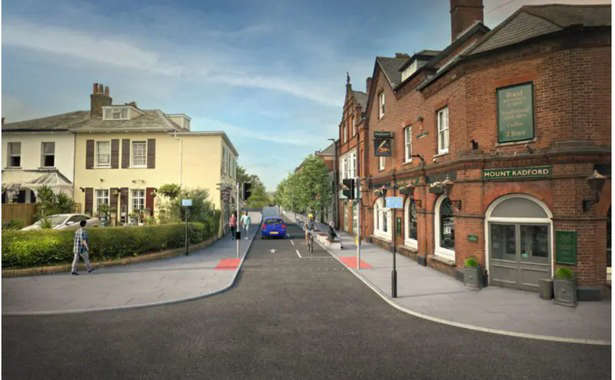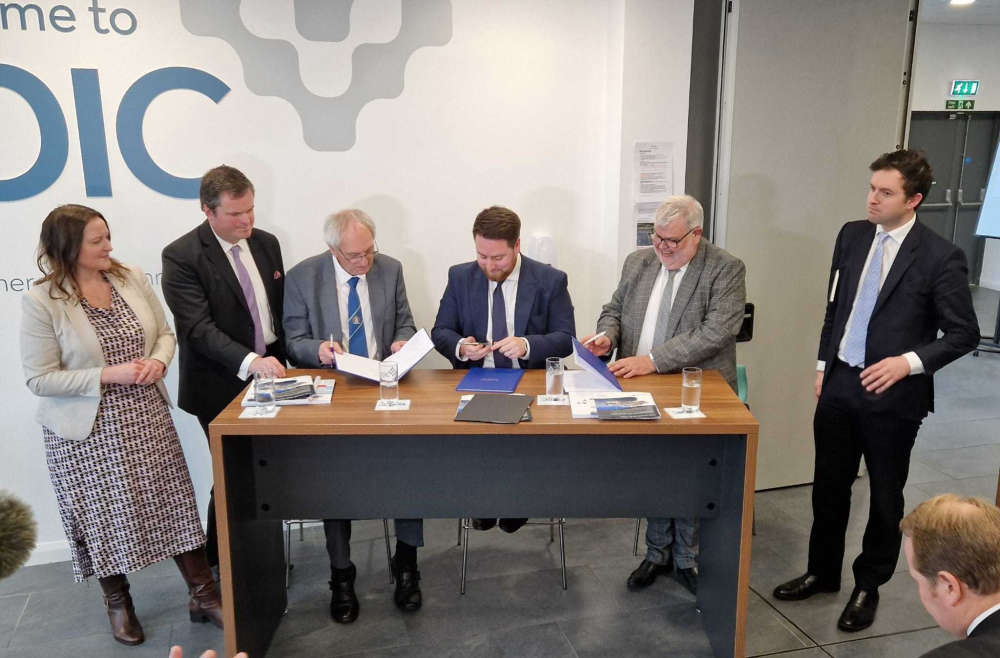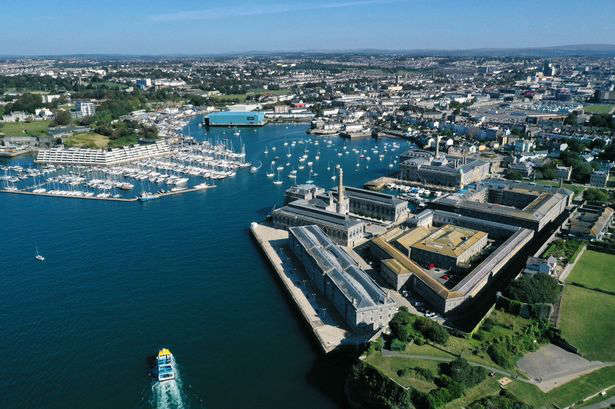
Activist calls for 'radical change' to Exeter travel
Active travel measures in Exeter to increase walking and cycling need to start an urgent shift away from cars, according to an Exeter environmental activist.
Several initiatives, initially temporary, were introduced in the city and other parts of Devon last year to provide safer routes for the higher numbers of people walking and cycling following the covid outbreak.
Now it’s been decided that some will be made permanent, including the one-way layout on Magdalen Road after 75 per cent of people supported reducing through-traffic. However, another consultation found the public are split 50-50 on whether Queen Street should stay one-way.
Extinction Rebellion supporter Caspar Hughes, who in July was convicted of obstructing the highway outside a newspaper printing press in Hertfordshire, says climate change and the need to reduce emissions are reasons why such measures are needed.
“Clearly we have to make really radical change to transport over the next decade, which means we need to start very quickly,” he said.
His comments come after a councillor claimed the schemes in Exeter may have led to a “over a million miles” a year extra being driven by taxis navigating round the new one-way systems, including around one on Ludwell Lane in the Wonford area.
Last week Councillor Peter Holland (Conservative, St Loyes) acknowledged they had helped cyclists and improved the areas for residents but said one “unintended consequence” was increased miles for some drivers.
While Mr Hughes acknowledged some drivers may have to travel further, he claims this is “cherry-picking” data. He said: “We know that these schemes mean that people start to choose not to drive – I’m one of those people. Where I used to drive a lot, I don’t own a car now.
“Exeter is a really easy city to live in without owning a car,” he said. “For every example like that, there will be other examples where people start to walk their kids to school because it’s safe, or kids start to cycle to school because it’s safe. And a quarter of all traffic during peak times is school-run traffic.”
He continued: ” In order to make the roads and streets safer and less polluted for everybody, a minority of people will need to sometimes increase the distance of their journeys,” and help create a “habitable planet.”
Mr Hughes agreed some people were apprehensive to change, but said: “The bottom line is, unless we do change, our children are going to inherit a planet on which they can’t live peacefully, at least, or possibly a lot of them – at all.”
Earlier this month, Birmingham announced plans to become a huge low-traffic neighbourhood with its council looking to divert traffic from the city via a ring road while providing more buses and cycle lines. Mr Hughes said he wanted to see a similar vision for Exeter.
“We need to remove all privately owned cars as quickly as we can from the city centre and the same needs to happen in all cities in the UK. Obviously, that has to go hand in hand with a massive increase in cheap, reliable public transport and safe, active travel.”
He added: “In Europe, most of our cities have been liveable cities a long time before the car existed and it’s a switch. We just need to transform them back to being that. The template is there, the blueprint is there, we just need to transform them moving forward back to that again.”
Last week highways officer Will Pratt from Devon County Council said: “The approach we’ve got in Exeter is based on a cabinet-approved transport strategy and targets for active travel, a cabinet-approved cycle strategy where we focused on making changes in-between the radial routes, and that is so it’s a balanced approach.
 Young voices barely registered in devolution consultation
Young voices barely registered in devolution consultation
 Energetic Pretty Woman is a must-see
Energetic Pretty Woman is a must-see
 Devoncast - Police and Crime Commissioner election special
Devoncast - Police and Crime Commissioner election special
 New pledge on South Hams Freeport funding
New pledge on South Hams Freeport funding
 Axminster children connect with space station
Axminster children connect with space station
 East Devon should get new CEO
East Devon should get new CEO
